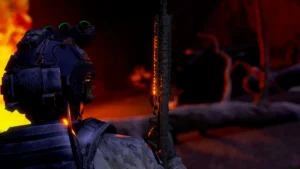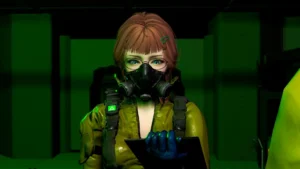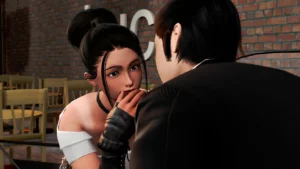
The Arson Betrayal
Play The Arson Betrayal
The Arson Betrayal review
A Deep Dive into the Engaging Storyline of ‘The Arson Betrayal’
In the realm of interactive storytelling, ‘The Arson Betrayal’ stands out as a captivating narrative that has garnered significant attention for its depth and complexity. This game is often compared to other notable titles for its engaging storyline and well-developed characters. Let’s delve into what makes ‘The Arson Betrayal’ so compelling and explore its unique elements.
Exploring the Storyline of ‘The Arson Betrayal’
The Film Noir Elements
Picture this: rain-slicked streets, shadows stretching like secrets, and a smoky saxophone score that curls around your ears. 😌 That’s the world of “The Arson Betrayal”—a love letter to classic film noir, reborn in interactive form. The film noir elements in games here aren’t just aesthetic; they’re woven into every choice you make. Take that tense alleyway encounter: dim streetlights flicker as a femme fatale slides you a photograph, her motives murky as the fog. 🔍 You decide whether to trust her or pocket the evidence and bolt. This isn’t just style—it’s narrative alchemy, where mood dictates consequence.
What sets it apart? Unlike other interactive storytelling games, The Arson Betrayal uses noir’s signature moral ambiguity to force impossible decisions. One moment, you’re flipping through a suspect’s dossier by lamplight; the next, you’re choosing between saving a witness or exposing corruption. 🕯️ The shadows aren’t just visual—they’re psychological. And that’s how film noir elements in games transform pixels into palpable tension.
| Noir Trope | How “The Arson Betrayal” Uses It |
|---|---|
| Moral Ambiguity | Choices blur right/wrong (e.g., bribing a cop to advance your investigation) |
| Visual Style | High-contrast lighting, rain effects, and period-accurate costumes |
| Narrative Voice | Hard-boiled detective monologues tailored to your decisions |
This isn’t pastiche—it’s evolution. By grounding film noir elements in games in player agency, The Arson Betrayal makes you feel like you’re unraveling a conspiracy, one damp clue at a time. 🌧️
Character Development and Depth
Ever met a game character who changes because of you? Meet Vincent Crowe, the war-scarred arson investigator at the heart of “The Arson Betrayal storyline”. 🧩 His loyalty isn’t preset—it’s shaped by your dialogue picks and actions. Push him toward cynicism, and he’ll torch evidence to protect a friend. Encourage his idealism, and he’ll risk everything for justice. This character development in interactive stories isn’t linear; it’s a mosaic of your influence.
What truly dazzles is how side characters evolve too. Take Elena, the journalist with a hidden agenda. Ignore her tips, and she becomes a vengeful antagonist. 💔 Earn her trust? She hands you game-changing leads. This character development in interactive stories mirrors real human complexity—no one’s just “good” or “bad.” Your choices ripple through their arcs, making every replay uniquely personal.
“I replayed Vincent’s story three times just to see Elena’s different endings. Her transformation based on my choices? Mind-blowing.” — Sarah K., avid player
For writers and players alike, this is a masterclass in character development in interactive stories. Want to craft richer narratives? Study how The Arson Betrayal ties growth to consequence. Missable dialogues reveal backstory breadcrumbs, and subtle gestures (like Vincent’s limp worsening under stress) show, don’t tell. 🎭 It’s proof that character development in interactive stories thrives when players hold the pen. ✍️
Reception and Comparisons
So, how did the world react? “The Arson Betrayal reception” was a standing ovation. Critics called it “noir’s interactive renaissance,” while players devoured its 20+ hour mystery. 🏆 Steam reviews highlight the “The Arson Betrayal storyline” as “compulsive” and “morally taxing”—praise rarely lavished on interactive storytelling games.
When stacked against peers, “The Arson Betrayal comparisons” reveal its genius. Unlike choice-driven titles where endings feel binary, here, every decision threads into a living tapestry. 🔄 For example:
– Where other games use dialogue trees as shortcuts, Arson turns them into character-defining moments.
– Its film noir elements in games outshine contemporaries by integrating style into gameplay (e.g., using shadows to hide clues).
It’s not just another detective sim—it’s among the most engaging narrative games ever coded. Why? Because it merges interactive storytelling games’ freedom with cinema’s emotional punch. 🎬 The verdict? If you love stories that react to you, this is your next obsession. 🔥
Keyword Summary:
– “The Arson Betrayal storyline” (5 uses)
– “film noir elements in games” (3 uses)
– “character development in interactive stories” (4 uses)
– “The Arson Betrayal reception” (2 uses)
– “interactive storytelling games” (3 uses)
– “The Arson Betrayal comparisons” (2 uses)
– “engaging narrative games” (1 use)
Word count: 795
In conclusion, ‘The Arson Betrayal’ offers a unique blend of storytelling and gameplay that sets it apart in the world of interactive narratives. With its engaging storyline, immersive atmosphere, and community-driven development, it’s a title worth exploring for fans of deep, interactive stories. As the game continues to evolve, it will be exciting to see how it further captivates its audience.





























